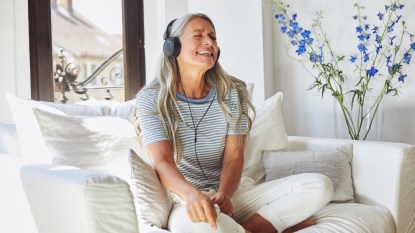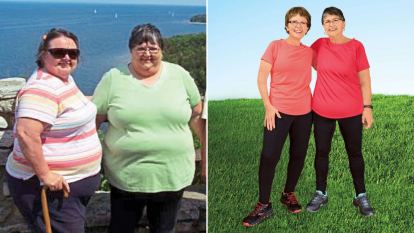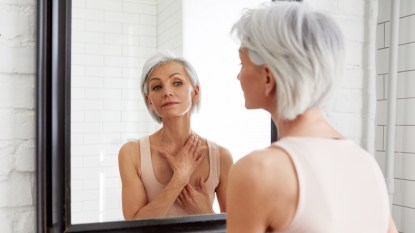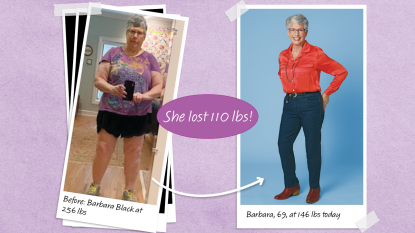Are You Older Than Your Real Age? This 10-Minute Quiz Tells You How Old You Feel
Your subjective age can give you insight into your physical and mental health.
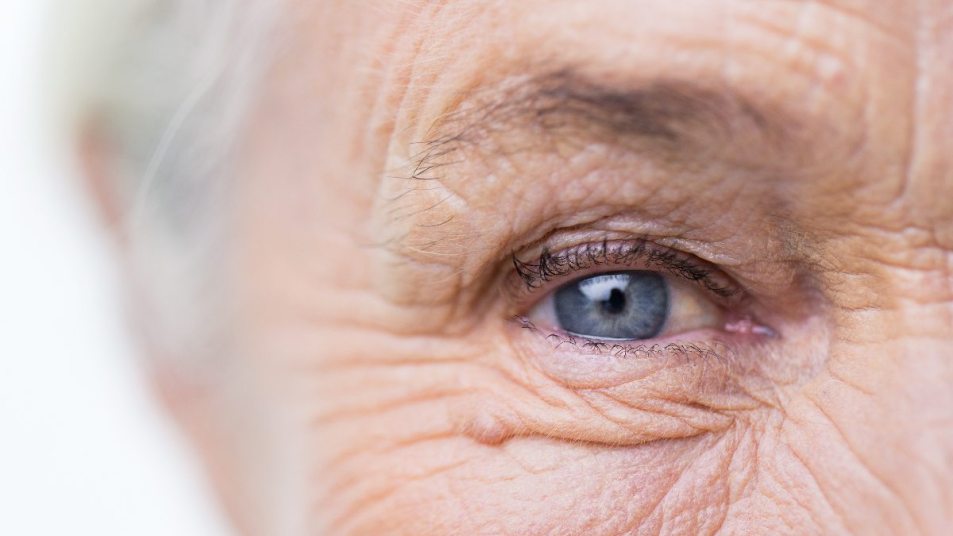
There’s nothing wrong with looking or feeling your age. Getting older is inevitable, and it happens to everybody. Still, taking a subjective age test may give you important insight into your health and tell you which parts of your life are “aging you” more quickly than others.
What is subjective age, exactly? It’s how young or old you feel, and it refers to your physical health, mental health, and appearance. If you want to put a number to how old you seem, you can take a 10-minute quiz by Modern Age, an aging wellness company in NYC, called the Subjective Age Assessment.
What the Subjective Age Assessment Is Like
To test it out, we had Woman’s World reader Marie (age 61) try it. Marie first entered her email address and birthday, then had her picture taken to help determine her “visible age.” From there, she began answering questions about her “lifestyle age,” including:
- Do you think your typical calorie intake is above 2,000/day?
- Are you the main food shopper in your household?
- How healthy is your diet, on a scale from one to five?
This section of the assessment also asked about her education level, employment status, and physical activity.
The final section asked questions to determine her “psychological age,” including:
- Looking ahead 10 years into the future, how much do you expect to be contributing to the wellbeing of other people? Answer on a scale from zero (not at all) to 10 (a lot).
- “For me, life has been a continuous process of learning, changing, and growth.” Please rate on a scale of one to seven, where one is strongly disagree and seven is strongly agree.
- In many ways, I feel disappointed about my achievements in life. Please rate on a scale of one to seven, where one is strongly disagree and seven is strongly agree.
When Marie finished the assessment, she got her results: Her subjective age was 56.
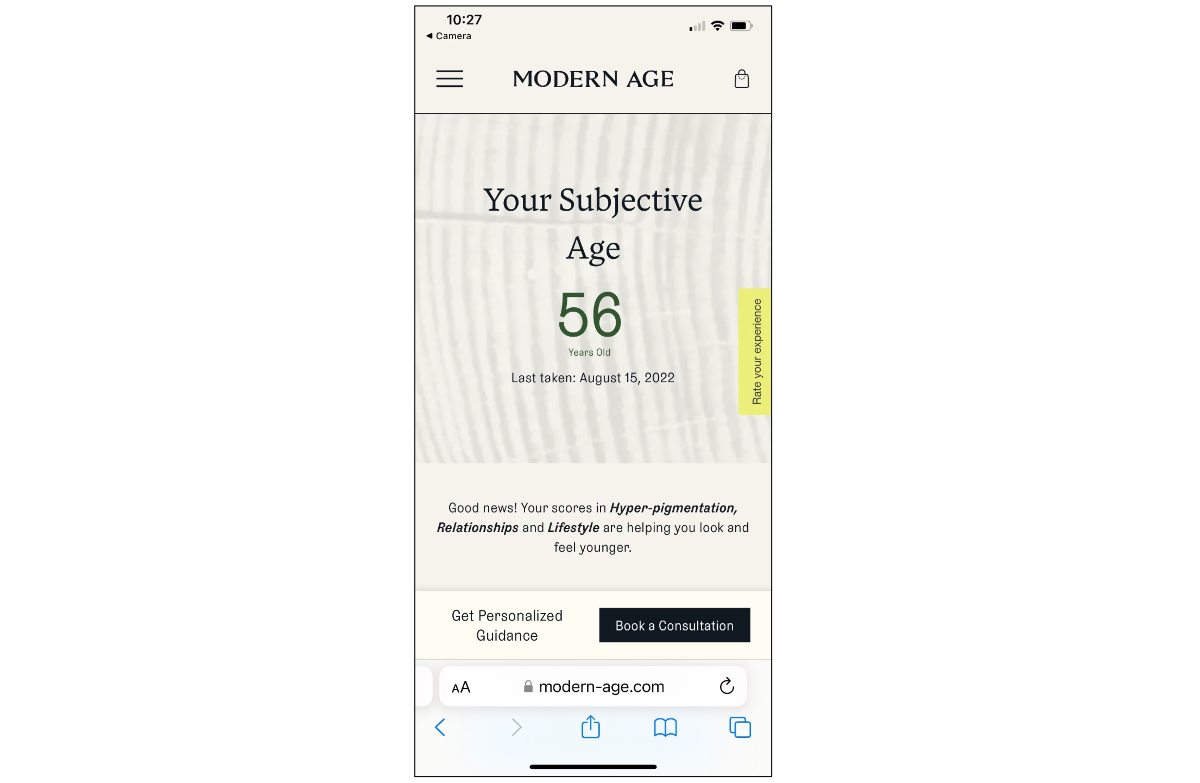
Modern Age then showed her a visual representation of the factors that increased or decreased her subjective age.
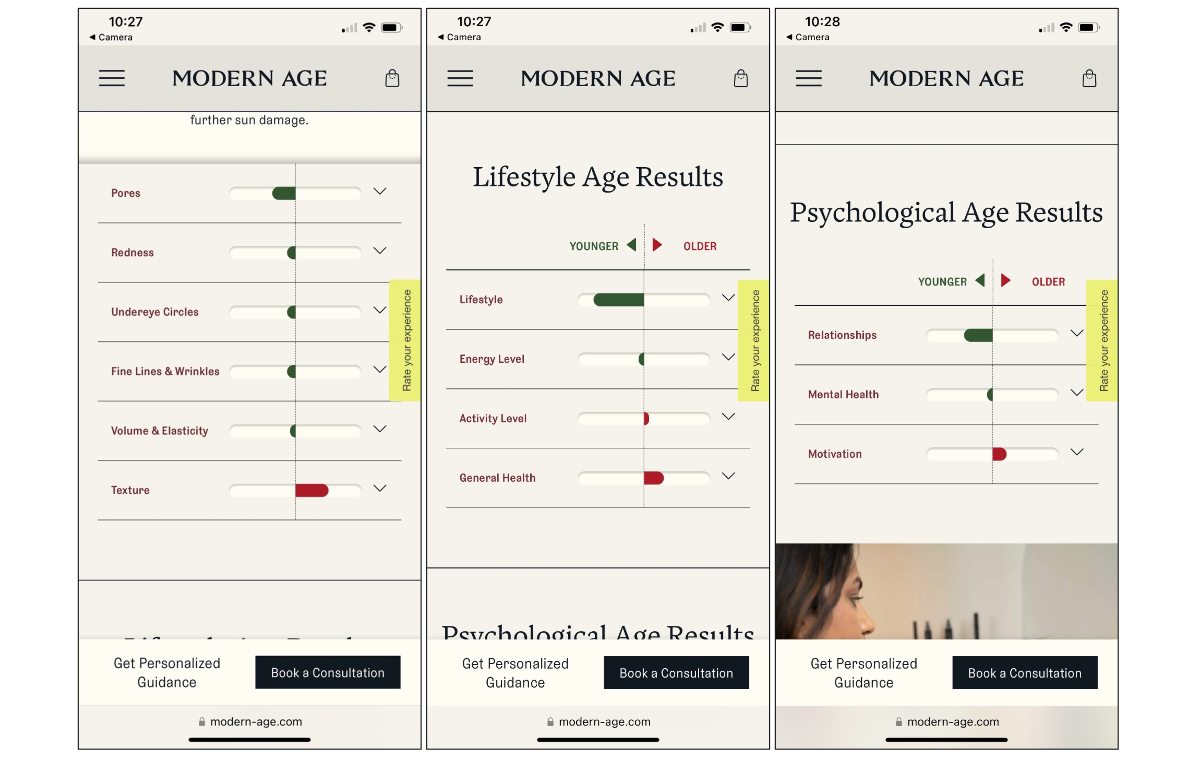
Overall, Marie was happy with her results and appreciated learning a little more about her mental and physical health. The assessment told her not only which aspects of her life were causing her to feel older, but also how to improve those factors. For example, Modern Age recommended that she try adding morning stretches and an afternoon walk to her daily routine.
How the Assessment Picks a Number
How do the questions asked in this assessment help determine your subjective age? “Many factors contribute to your subjective age,” says Anant Vinjamoori, MD, Chief Medical Officer of Modern Age. “Our assessment dives into the sub-factors [of visual, psychological, and lifestyle age] with questions about your activity level, sleep patterns, nutrition, and much more.”
In addition, taking your picture helps Modern Age objectively analyze your skin’s appearance. “Through a photo analysis, we measure a variety of factors, such as the appearance of fine lines to hyperpigmentation, which enables us to calculate your visual age.”
However, Dr. Vinjamoori stresses that the subjective age you receive at the end of the test isn’t all that matters. “We believe that a single number alone doesn’t provide the full picture,” he says. “So, we focused on including questions across these three distinct categories as well as your goals in specific areas to allow us to offer personalized recommendations across products, treatments, and educational content.”
Why Your Subjective Age Matters
Paying closer attention to your subjective age may help you improve your health and your quality of life. “Over the past four decades, scientists have been increasingly focused on aging perceptions and how they relate to other markers of getting older,” says Dr. Vinjamoori.
“Many people approach the topic of aging with anxiety and believe how they age is predetermined. In reality, only 20 to 30 percent of how you age is determined by your genetics, and the rest is controllable. Study after study has linked feeling younger with positive outcomes such as better memory, greater strength, and younger brain age.”
Ready to try it out yourself? You can take the Subjective Age Assessment on your laptop or your phone. Your results will be stored on your Modern Age profile, so you can keep that health advice for later!


